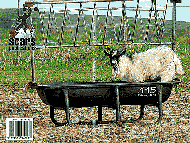



|
This writing was accepted for publication in the 84 page perfect-bound issue... Down in the Dirt magazine (v115) (the February 2013 Issue) You can also order this 5.5" x 8.5" issue as an ISSN# paperback book: |

|
|
| |
|
Order this writing in the book Entanglement (a Down in the Dirt collection book) |
 |
get the 340 page Jan. - June 2013 Down in the Dirt magazine issue collection 6" x 9" ISBN# paperback book: |
| ||
![]()




